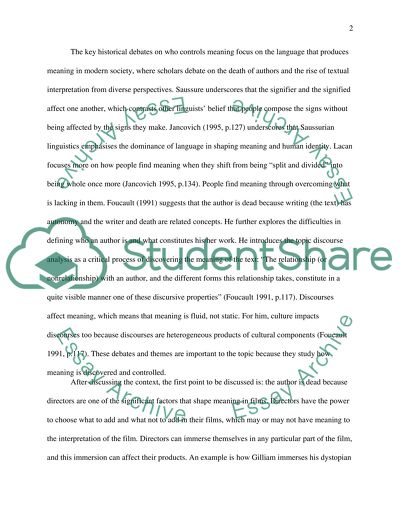Cite this document
(“Meaning when the Author is Dead: Foucault on Gilliams Brazil (1985) Essay”, n.d.)
Retrieved from https://studentshare.org/visual-arts-film-studies/1484249-meaning-when-the-author-is-dead-foucault-on-gilliams-brazil-1985
Retrieved from https://studentshare.org/visual-arts-film-studies/1484249-meaning-when-the-author-is-dead-foucault-on-gilliams-brazil-1985
(Meaning When the Author Is Dead: Foucault on Gilliams Brazil (1985) Essay)
https://studentshare.org/visual-arts-film-studies/1484249-meaning-when-the-author-is-dead-foucault-on-gilliams-brazil-1985.
https://studentshare.org/visual-arts-film-studies/1484249-meaning-when-the-author-is-dead-foucault-on-gilliams-brazil-1985.
“Meaning When the Author Is Dead: Foucault on Gilliams Brazil (1985) Essay”, n.d. https://studentshare.org/visual-arts-film-studies/1484249-meaning-when-the-author-is-dead-foucault-on-gilliams-brazil-1985.


